What’s driving Prince Harry to follow in Edward VIII’s ill-fated footsteps? Because, like the shamed monarch, the Duke of Sussex was adored before he gave up royal duty and married an American divorcee, writes CHRISTOPHER WILSON
What drives Prince Harry to increasingly follow in the Duke of Windsor’s footsteps?
The two men, both pin-up boys of the royal family in their generation, both fled the country when duty called.
In the case of David, the famous and glamorous Prince of Wales before his short reign as King Edward VIII, you could say he didn’t know what he was doing.
But Harry? A glance at the pages of any royal history book would have warned him of the disorientation, despair and loss of status that befalls a senior royal when he walks away.
His great-uncle held on after his abdication in 1936, and now that news has emerged that Harry may be seeking a partial return to the royal family, we are seeing history repeat itself.
Perhaps unsurprisingly, the two royals have a lot in common, even though one was born king and the other was merely a spare.
Both beloved, both headstrong, both in the thrall of a divorced American woman. Harry, Duke of Sussex, and David, Duke of Windsor, are separated by nearly 100 years of history, but their stories are uncannily similar.
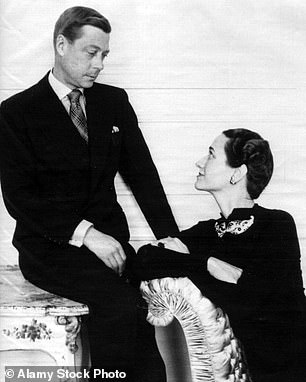
The Duke of Sussex and the Duke of Windsor are separated by almost 100 years of history, but their stories share an uncanny similarity. Above: Prince Harry and Meghan Markle photographed for Time100 Talks in 2020; former King Edward VIII and Wallis Simpson
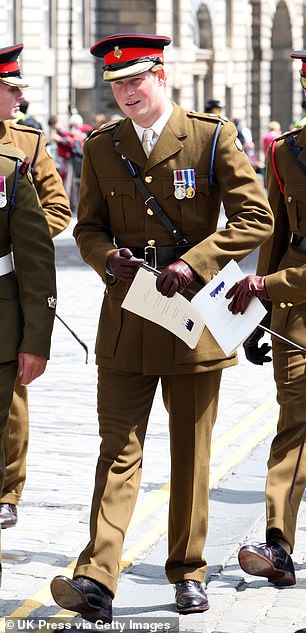
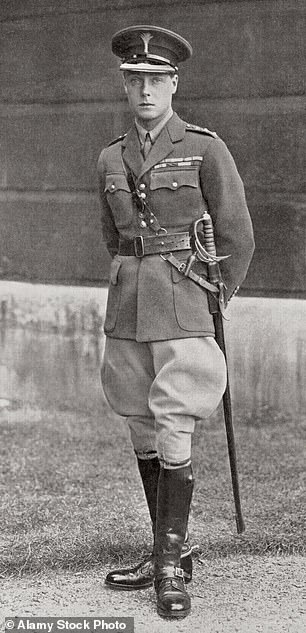
David joined the Grenadier Guards at the age of 20 and Prince Harry was around the same age when he joined the British Army.
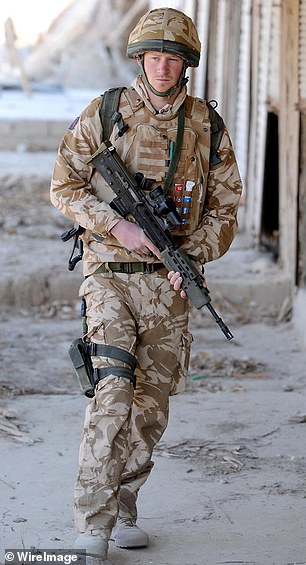
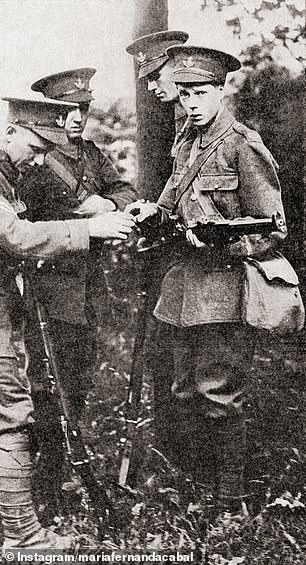
Both princes were thrown into the war zone at a young age, David in the First World War and Harry in Afghanistan.
Both were thrown into combat at a young age – David serving in World War I, Harry actually fighting in Afghanistan – and discovered a camaraderie in the armed forces they couldn’t find at home.
At the age of 20, David joined the Grenadier Guards in 1914, hoping to serve on the Western Front.
But he was stopped by Secretary of State for War Lord Kitchener, who feared a propaganda stunt if the future king were killed or captured by the Germans.
However, he did witness the trench warfare and barely escaped when his car was hit by an enemy grenade.
Harry served in the Army for ten years, serving with distinction. His last year was as commander of an Apache helicopter in Afghanistan.
He later tarnished his reputation by claiming to have killed 25 Taliban soldiers, which other veterans criticized as bad taste.
War hero Colonel Tim Collins snapped: “We don’t put notches in the butts of guns.”
Their service in the army gave both men a desire to help the underdog. In the 1930s David called for the care of unemployed miners in South Wales in their poverty.
Harry focuses on the plight of wounded and disabled soldiers by establishing the Invictus Games.
This made them both even more appealing, as they amazed audiences with their down-to-earth, practical approach and their concern for people in need.
But both used drink and women to escape the pressures of the so-called glamorous lives they led.
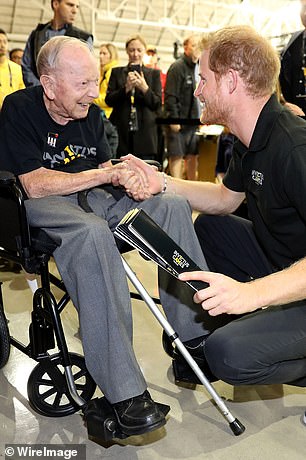
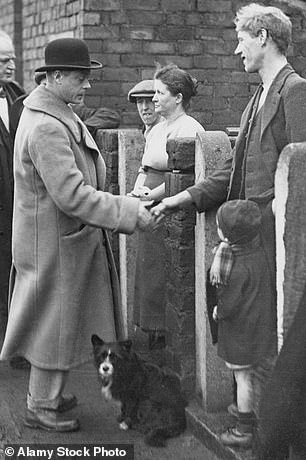
The army gave both men the desire to help the underdog, David calling for the care of unemployed miners in South Wales in their poverty and Harry focusing on the plight of wounded veterans.
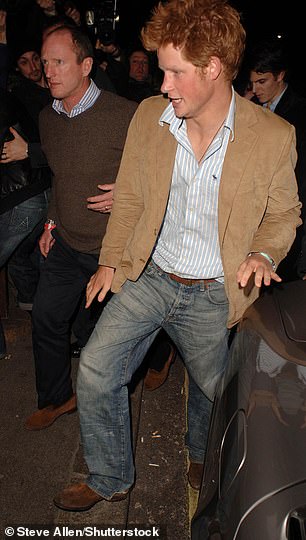
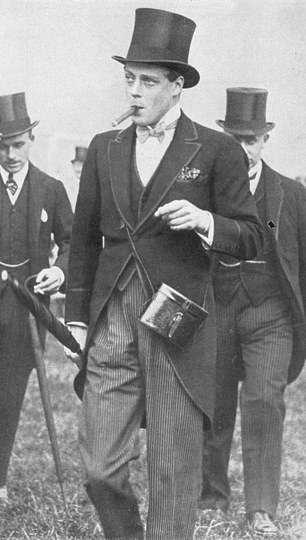
But both men used drink, and women, to escape the pressures of the so-called glamorous lives they led.
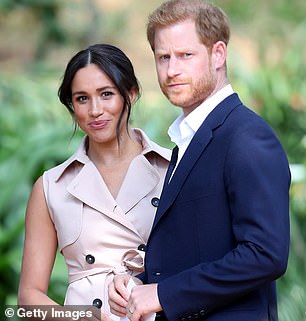
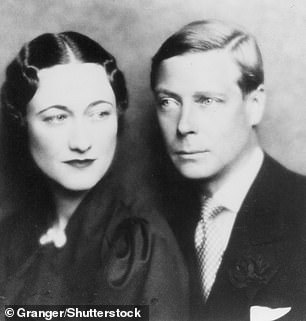
Both found solace for their troubles in women with stronger personalities – David in Wallis Simpson, a highly ambitious American divorcee, and Harry in Meghan Markle, who could be described in the same way
Harry was memorably photographed naked in a Las Vegas hotel room in 2012, where he was drunkenly playing strip pool with a group of women.
He later wrote that he felt “ashamed and guilty” after the photos were published.
David drank and slept with women in a more intimate but equally scandalous manner during his tour of British East Africa in 1928 – although, unlike Harry, he never showed any remorse.
Surrounded by subservient courtiers and hangers-on, neither of them ever heard the word “no” in their presence, creating a belief that whatever they did, it had to be right.
That worked as long as they were still acting as royalty, but it led to problems when they emerged from behind the palace gates and were forced to face the real world.
Both allowed their highly developed persecutory mania to make them unattractive to the public and their friends.
The Duke was constantly worried about money and refused to pay bills, while Harry was most concerned about what he himself called press interference.
Both found solace from their troubles with women of stronger personalities: Windsor with Wallis Simpson, a highly ambitious American divorcee, and Harry with Meghan Markle, who could be described in a similar way.
Both women imposed their will and thoughts on their husbands.
The first duchess soon grew bored with life as an exiled queen. So the question is: will the second duchess follow suit?
Both men allowed their thoughts to be dominated by love for their beloved, at the expense of their common sense.
Both women, however, felt that they were being looked down upon by the royal family, and especially by their courtiers. They inspired in their husbands the belief that there was a better world, far away from their royal destiny.
In both cases, this had the effect of undermining the men’s public appeal, and they fled into self-imposed exile.
Both men would soon discover that what seemed like a logical step to them was seen as a betrayal by others.
They both became dependent on the company of their wives’ friends and acquaintances, feeling like fish out of water as they spent their exiles in Paris and California, among people they didn’t really know.
Both were then inspired to write a book of memoirs – at a huge cost, which led to major scandals and further alienated them from the royal family and the public.
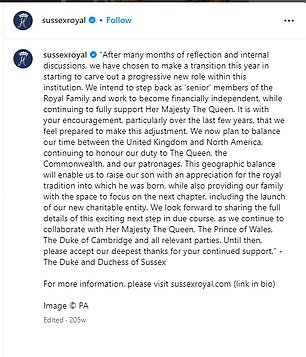
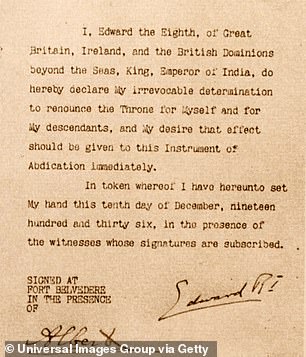
Both released statements informing the public that they were stepping down from their royal duties
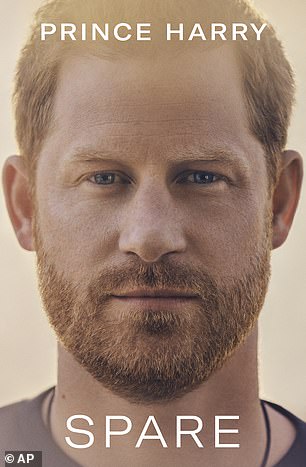
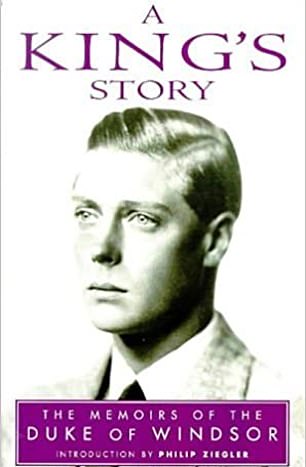
Both men wrote memoirs – for a lot of money – which caused great division within the royal family
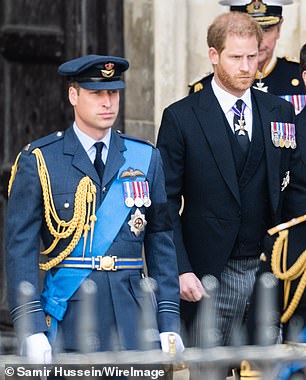
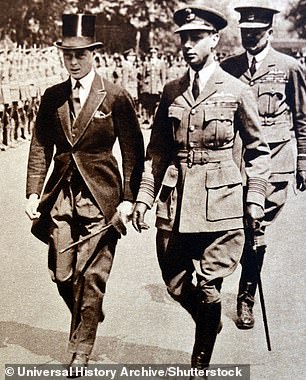
Windsor was hated by his brother Bertie, who was forced to ascend the throne as King George VI when his elder brother abandoned him, causing his early death at the age of 56. In Harry’s case, he alienated the most powerful force in the royal family, the future king
Until his death in 1971, at the age of 75, the Duke of Windsor longed to be reinstated in the royal family.
He couldn’t stand to see the damage that had been done and the bitter disappointment he had caused to the millions of people who were once his fans.
Similarly, we now learn that Harry may want to return to Britain and possibly take up royal duties there.
This latest development is just another example of him following in his great-uncle’s footsteps and the chances are good that he will achieve a similar result.
And for one major reason: it seemed like every man was doing everything he could to alienate themselves from the one person who could have pulled them out of the cold: their brother.
Windsor was hated by his brother Bertie, who was forced to ascend the throne as King George VI when his elder brother abandoned him, causing an early death at the age of 56.
In Harry’s case, his actions alienated the most powerful force within the current royal family: the future king, Prince William.
It seems that Harry has learned nothing from his ancestor’s example.
Unfortunately, both men had a startling lack of understanding of what royal duty entails: that something is expected of you in return for the honour, wealth and admiration bestowed upon you.
Even in the royal world, nothing is free.
